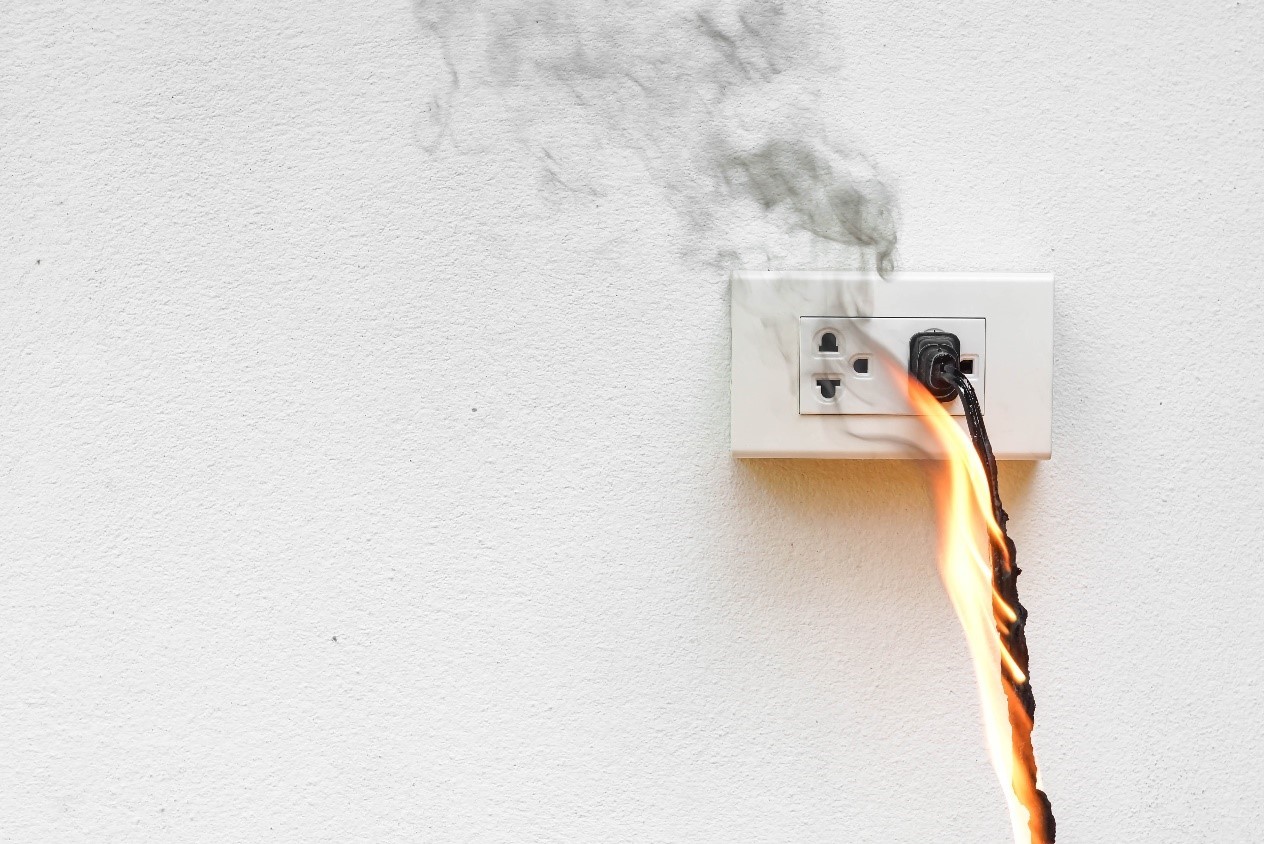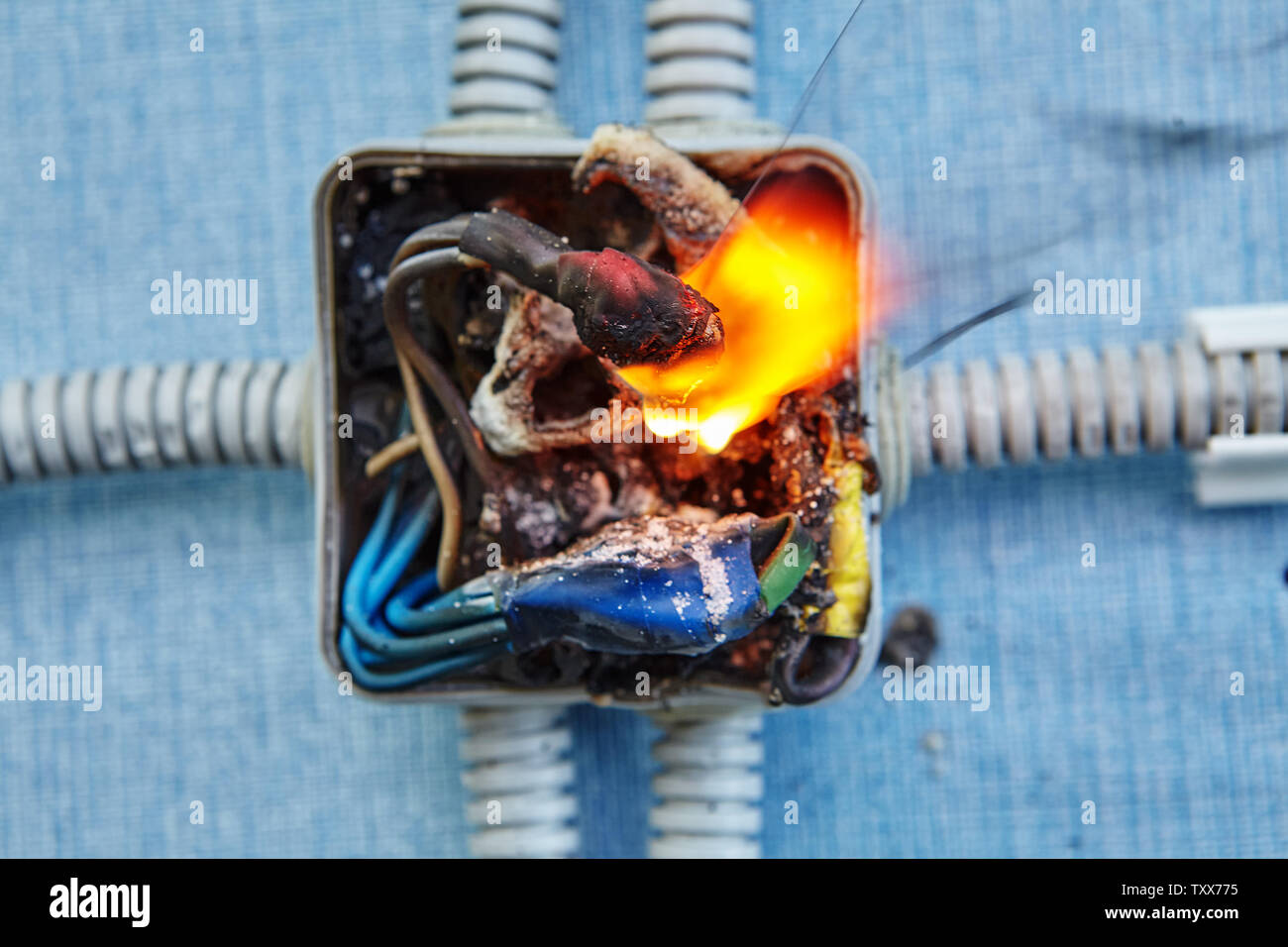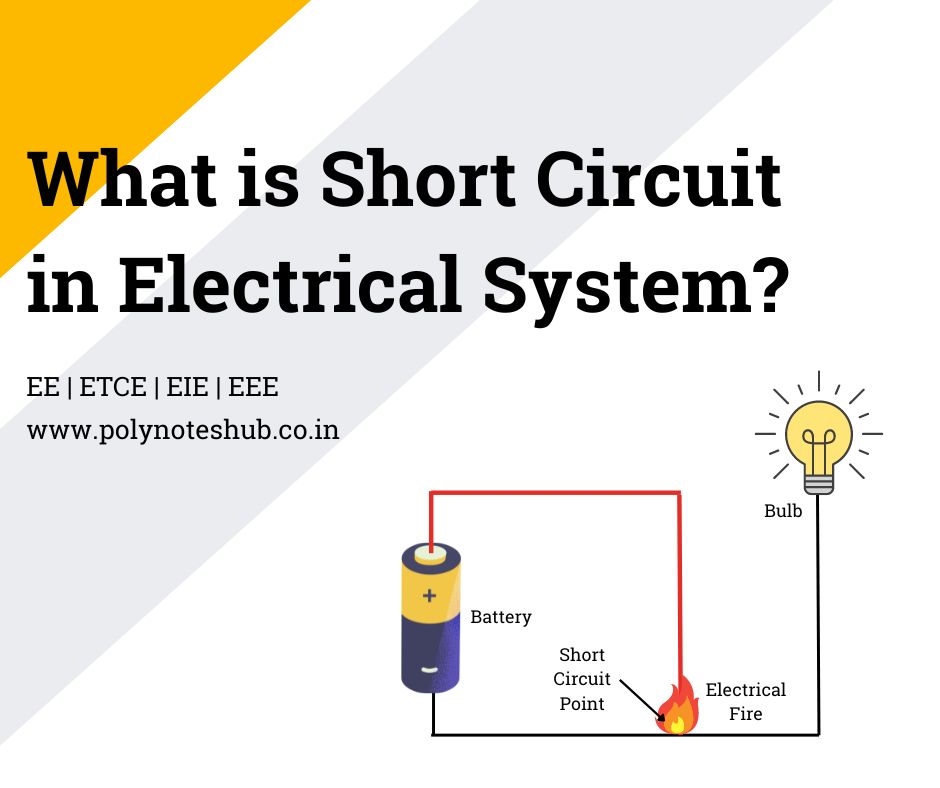One Of The Best Tips About Is A Short Circuit Bad

What Is A Short Circuit? Causes & Prevention Methods MTAEE
Short Circuits
1. What exactly is a short circuit, anyway?
Okay, so you've probably heard the term "short circuit" thrown around. Maybe you've even seen one in a cartoon where a robot malfunctions and starts dancing uncontrollably (hopefully not in real life, though). But what actually is it? Essentially, it's when electricity takes an unintended, low-resistance path in a circuit. Think of it like this: electricity wants to get from point A to point B. Usually, it has to go through some component, like a light bulb or a motor, which offers some resistance. A short circuit is like finding a shortcut that bypasses that component. Suddenly, all that electricity rushes through the shortcut, because, well, who wouldn't take the easy way?
Imagine a river flowing along its normal course, powering a water wheel. Now, imagine a dam breaks, creating a new, much wider channel. Most of the water will now flow through this new channel, bypassing the water wheel altogether! That's essentially what's happening with a short circuit. Instead of the electricity powering your device, it's taking the path of least resistance, which leads to all sorts of problems.
The noun "short circuit" in this context refers to this unintended pathway. Understanding that the short circuit is the physical or electrical phenomenon is key to understanding its potential dangers. Think of it as a rogue river, misbehaving and potentially causing damage.
This sudden surge of electricity is where the danger lies. It can generate a lot of heat very quickly. And heat, as you might imagine, is not a friendly houseguest when it comes to electrical systems.

What Is Short Circuit In Simple Words
Why Short Circuits are Bad News Bears
2. So, why all the fuss? What's so bad about a little shortcut?
Well, as we touched on earlier, the main issue is heat. When electricity rushes through that low-resistance path, it generates a lot of heat. Think of rubbing your hands together really fast. They get warm, right? Now imagine doing that on a much larger scale with a much larger force. That's kind of what's happening in a short circuit.
This excessive heat can melt wires, damage components, and even start a fire. That's why you often hear about electrical fires being caused by short circuits. It's not a pleasant scenario, to say the least. Nobody wants their house turning into a giant, expensive bonfire.
Beyond the fire hazard, short circuits can also damage your electronic devices. The sudden surge of current can fry sensitive components, rendering them useless. Ever had a phone charger suddenly stop working? A short circuit could be the culprit.
Furthermore, a short circuit can trip your circuit breaker or blow a fuse. This is actually a good thing, as it's a safety mechanism designed to prevent further damage and potential fires. But it's still inconvenient, especially if it happens in the middle of watching your favorite show.

What Is An Electrical Short Circuit? Cause, Sign, And Prevention
Spotting the Signs
3. Early detection can save you from a bigger headache.
So, how can you tell if you have a short circuit brewing in your home? There are a few telltale signs to watch out for. One of the most common is a frequently tripping circuit breaker or blowing fuse. If you find yourself constantly resetting a breaker or replacing a fuse, there's a good chance something is amiss.
Another sign is a burning smell coming from an outlet or appliance. If you smell something burning, immediately unplug the appliance and investigate. Don't ignore that smell! It's your electrical system's way of saying, "Help, I'm on fire (almost)!"
You might also notice scorch marks or discoloration around outlets or switches. This indicates that there has been excessive heat in that area, which could be due to a short circuit. Furthermore, flickering lights can sometimes be a sign of an electrical problem, including a short circuit, although it could also indicate other issues.
Finally, if an appliance is sparking or smoking, that's a pretty clear indication that something is wrong. Immediately unplug the appliance and do not use it until it has been inspected by a qualified electrician. Seriously, don't try to be a hero here. Safety first!

Prevention is Key
4. Taking simple precautions can go a long way.
The best way to deal with a short circuit is to prevent it from happening in the first place. Fortunately, there are several simple steps you can take to reduce your risk. One of the most important is to regularly inspect your electrical cords and appliances for damage. Look for frayed wires, cracks, or other signs of wear and tear. Damaged cords are a common cause of short circuits.
Avoid overloading your electrical outlets. Plugging too many devices into a single outlet can put a strain on the circuit and increase the risk of a short circuit. Use power strips with surge protectors to help distribute the load and protect your devices from power surges.
Be careful when using electrical appliances near water. Water and electricity don't mix! Never use hair dryers or other electrical devices in the bathroom near a sink or bathtub. If an appliance falls into water, do not touch it! Immediately turn off the circuit breaker that serves that outlet.
Finally, if you're doing any electrical work, be sure to turn off the power at the circuit breaker before you start. And if you're not comfortable doing electrical work yourself, always hire a qualified electrician. It's better to be safe than sorry, especially when it comes to electricity.

When to Call a Pro
5. Some things are best left to the experts.
While there are some electrical issues you can safely handle yourself, short circuits are generally best left to the professionals. If you suspect you have a short circuit, or if you're uncomfortable working with electricity, it's always best to call a qualified electrician. They have the knowledge, skills, and equipment to diagnose and repair electrical problems safely and effectively.
Trying to fix a short circuit yourself without the proper training and experience can be dangerous. You could risk electrocution, fire, or further damage to your electrical system. It's simply not worth the risk. Think of it like trying to perform surgery on yourself after watching a YouTube video. Not a good idea, right?
A qualified electrician can identify the source of the short circuit, repair any damaged wiring or components, and ensure that your electrical system is safe and up to code. They can also advise you on ways to prevent future short circuits and other electrical problems.
So, if you're ever in doubt, don't hesitate to call a professional. Your safety and the safety of your home are worth it. Plus, you'll have the peace of mind knowing that the job was done right.

What Is Short Circuit? Definition, Damages, Examples New Topic
FAQ
6. Your burning questions, answered! (Hopefully not literally)
Let's tackle some frequently asked questions about short circuits, just to clear up any lingering doubts.
Q: What's the difference between a short circuit and an overload?A: A short circuit is a low-resistance path that allows electricity to bypass the intended circuit. An overload is when you're drawing too much current through a circuit, exceeding its capacity. Both can trip a breaker, but the cause is different.
Q: Can a short circuit cause a power surge?A: Yes, a short circuit can sometimes cause a power surge, as the sudden flow of electricity can disrupt the normal voltage levels in your electrical system. That's why surge protectors are always a good idea!
Q: My circuit breaker keeps tripping. Is it definitely a short circuit?A: Not necessarily. A frequently tripping breaker could also indicate an overload or a faulty breaker. It's best to investigate further to determine the root cause. If in doubt, call an electrician!